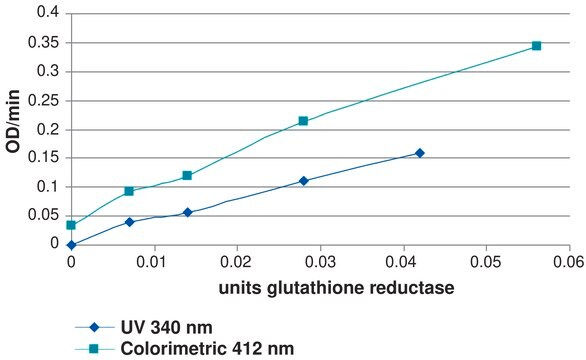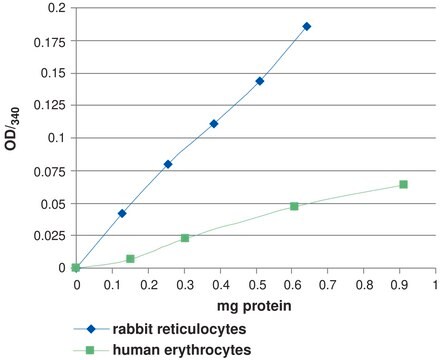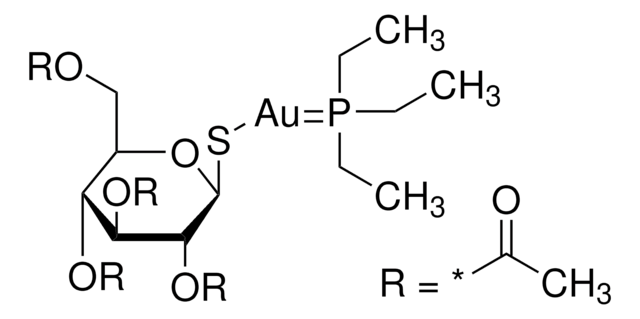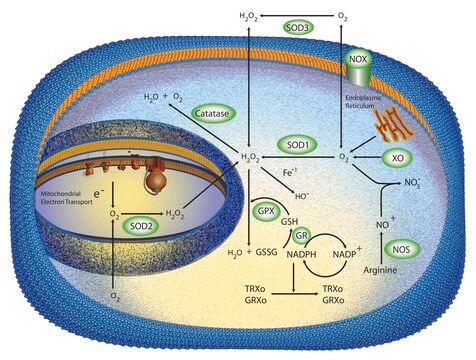38185
Quantification kit for oxidized and reduced glutathione
200 tests
Synonym(s):
γ-L-glutamyl-L-cysteinylglycine kit, Quantification kit
About This Item
Recommended Products
Related Categories
General description
Application
Features and Benefits
Components
- Enzyme Solution (50µl X 1)
- Buffer Solution (60ml X 1)
- Standard GSH (X 1)
- Masking Reagent (20µl X 1)
- Co-enzyme (X 2)
- Substrate (DTNB) (X4)
- Standard GSSG (X 1)
Analysis Note
Other Notes
Signal Word
Danger
Hazard Statements
Precautionary Statements
Hazard Classifications
Eye Irrit. 2 - Flam. Liq. 2 - Skin Irrit. 2 - Skin Sens. 1
Storage Class Code
3 - Flammable liquids
Regulatory Listings
Regulatory Listings are mainly provided for chemical products. Only limited information can be provided here for non-chemical products. No entry means none of the components are listed. It is the user’s obligation to ensure the safe and legal use of the product.
PDSCL
Please refer to KIT Component information
PRTR
Please refer to KIT Component information
FSL
Please refer to KIT Component information
ISHL Indicated Name
Please refer to KIT Component information
ISHL Notified Names
Please refer to KIT Component information
Cartagena Act
Please refer to KIT Component information
JAN Code
キットコンポーネントの情報を参照してください
Choose from one of the most recent versions:
Already Own This Product?
Find documentation for the products that you have recently purchased in the Document Library.
Customers Also Viewed
Our team of scientists has experience in all areas of research including Life Science, Material Science, Chemical Synthesis, Chromatography, Analytical and many others.
Contact Technical Service










